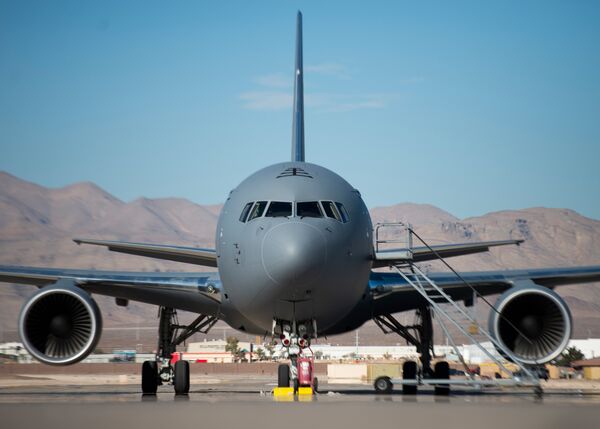
Boeing took a USD1.2 billion charge on its KC-46A Pegasus tanker programme in the third quarter of 2022. (US Air Force)
Problems in four military aviation development programmes fuelled a USD2.8 billion operating loss in Boeing Defense, Space & Security (BDS) business in the third quarter (Q3) of 2022, the US aerospace manufacturer reported on 26 October.
The KC-46A Pegasus tanker and the VC-25B Air Force One presidential aircraft replacement took earnings charges of USD1.2 billion and USD766 million, respectively, accounting for USD2 billion, or most, of the total loss, Boeing's chief financial officer Brian West told analysts. Labour and parts shortages hurt the KC-46A programme, while stringent security clearance requirements slowed the VC-25B programme's ability to add new employees amid a tight jobs market, West added.
The MQ-25 Stingray unmanned tanker, T-7A Red Hawk training jet, and Commercial Crew human space transportation system also recorded losses.
The disclosure came six months after Boeing reported it took a USD1.3 billion charge on the same four military aviation programmes in Q1 of 2022. All four aircraft programmes, plus Commercial Crew, have fixed-price development contracts, making Boeing responsible for cost overruns.
In the BDS portfolio, “85% of the business is doing pretty well”, West said. “It's these fixed-price development programmes that, unfortunately, we're working our way through.”
Despite the mounting red ink, Boeing officials expressed confidence that the programmes will ultimately be successful. During Q3, they said, BDS received a US Air Force award for 15 KC-46s and an Israeli Air Force award for four KC-46s.
“We're not embarrassed” by the charges, Boeing president and CEO Dave Calhoun told analysts. “They are what they are, and we intend to deliver against these contracts and satisfy our customers.”
Looking to read the full article?
Gain unlimited access to Janes news and more...







